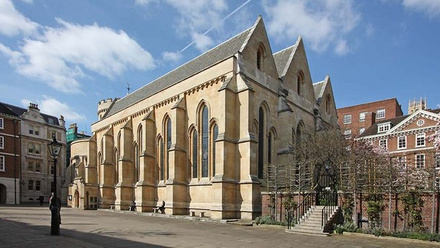Icon’s letter echoes calls made by IPSE, the Creative Industries Federation, the Federation of Small Businesses and Prospect who have jointly written to the leader. The calls come in response to recent alarming evidence on how the financial situation of the UK’s freelance workforce has continuously deteriorated since the Coronavirus outbreak.
Research by IPSE showed that many freelancers and self employed workers within the UK have fallen through Government support cracks and are ineligible for the Self-employment Income Support Scheme. Findings published by Museum Freelance Network confirmed a similar phenomenon within the heritage sector. Throughout the pandemic, Icon members have been sharing case studies and evidence demonstrating that this is also the case within conservation.
Freelancers need business support; they need access to training and skills; they need better care when they’re sick and they need to get paid on time
Rethinking freelance support
There is a clear need for Government to urgently rethink support measures for all freelancers. Icon wholeheartedly supports the recommendation jointly put forward by IPSE and others for a Freelance Commissioner and Future Workforce Commission.
“If we want to embrace entrepreneurialism, then a sticking plaster approach of payroll and self-employed support schemes can’t be the only answer. Instead, we need a full, comprehensive root and branch review of what the workforce of the 21st century needs in order to be resilient,” CIF Chief Executive Caroline Norbury said, introducing the proposal.
“We need to rethink the way that government interacts with, and supports, freelance workers. We need a system that ensures parity between the self-employed and those on payroll. This doesn’t just mean financial, and not just when there’s a pandemic. Freelancers need business support; they need access to training and skills; they need better care when they’re sick and they need to get paid on time. ” Norbury argued.
Icon believes that the simple and non-fiscal proposal would be an important step towards building more resilience into the workforce and ensuring no one falls through the gaps of support. Icon’s letter drew attention to the urgency of reconsidering support measures, citing the Museum Freelance Network’s research that showed a quarter of workers were considering to move outside of the cultural sector.
“These workers have enabled the UK to be a world leader in tourism, heritage management and the creative industries. The risk of losing their skills and expertise threatens the sector’s operational capacity and the UK’s standing on the world stage,” Icon outlined.
Regional differences
The proposal for a Freelance Commissioner is supported by a new policy review by the Centre for Cultural Value further confirming that current Government policy measures do not cater to the complexities of how freelance cultural workers earn their income currently.
It found that the majority of cultural policy decision-making has centred on economic relief for certain parts of the sector but that with shifts in working practices, new forms of business model and the creation of virtual content, different methods of support and cultural policy may need to be developed. A Future Workforce Commission could support the development of policies that look to the future, beyond the immediate Coronavirus crisis.
The policy review’s headline findings were the variations it found in the approach of the four UK nations’ cultural policy responses to the global pandemic, highlighting clear differences between the nations on funding priorities. Scotland, Northern Ireland, and Wales, were found to focus on individual practitioners while much of England’s relief funding supported organisations and institutions.
The Freelance Commissioner could ensure greater parity in support for individuals across the UK. “By working closely with representatives from the freelance workforce across UK nations and sectors, the Commission could ensure Government and business collectively promote and support entrepreneurialism and strengthen the UK’s position globally” Icon asserted.
With a significant number of freelance and self-employed members, we recognise our responsibility to support this vital part of the UK workforce. Icon therefore offers its full support for the proposal to establish a Freelance Commissioner and Future Workforce Commission and would be delighted to support Government and partners in implementing the idea.
Read the full letter.
---
Image: Creative Commons






